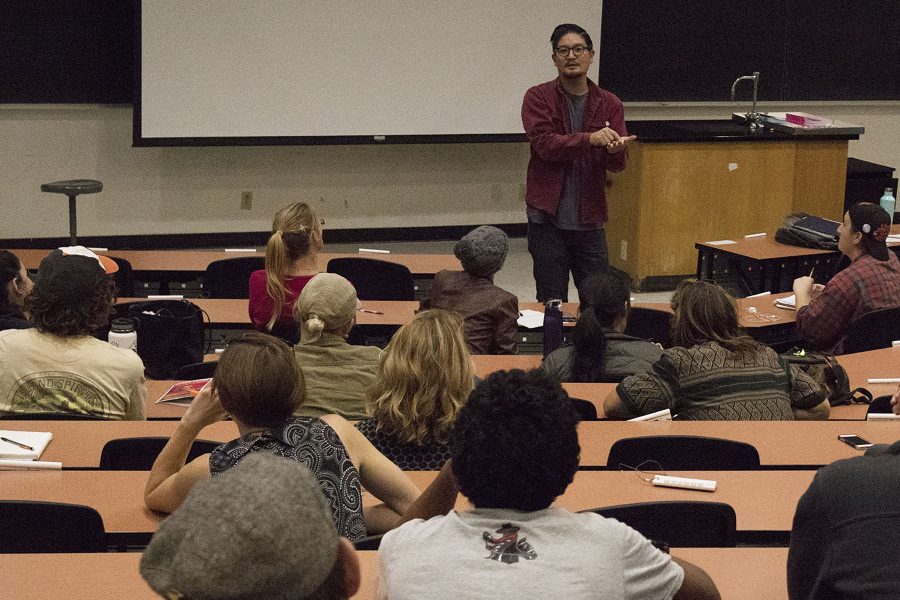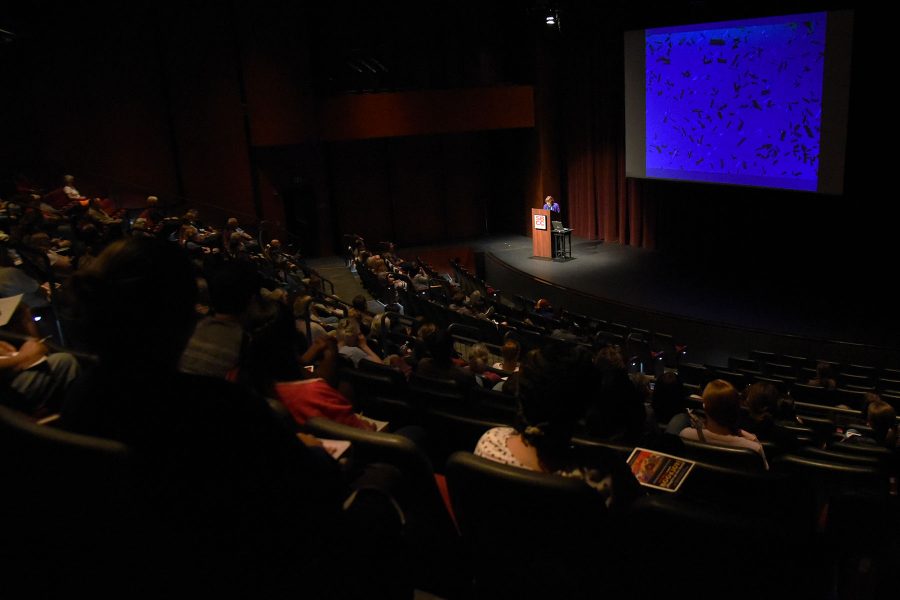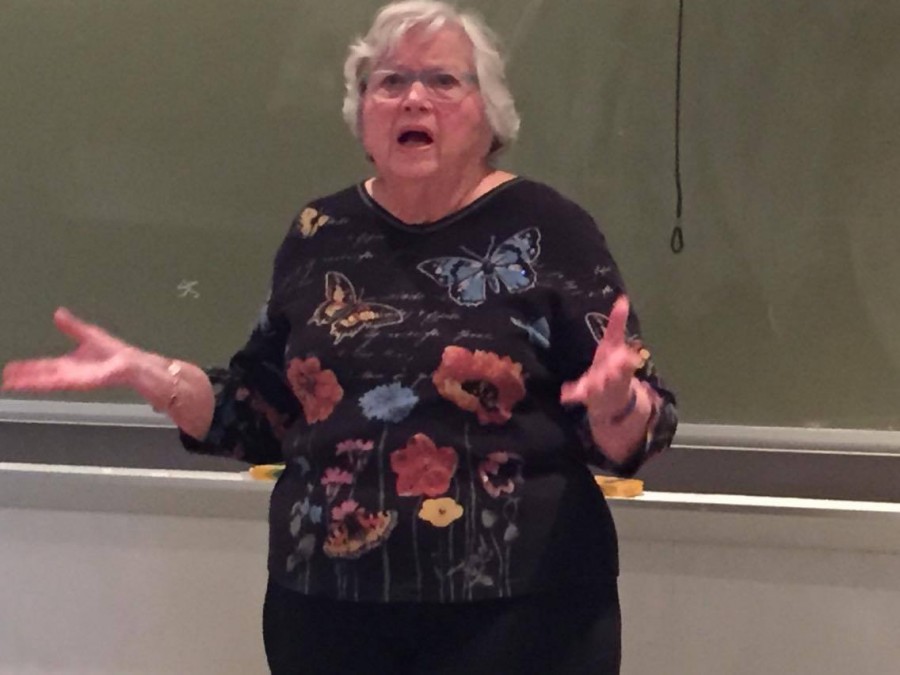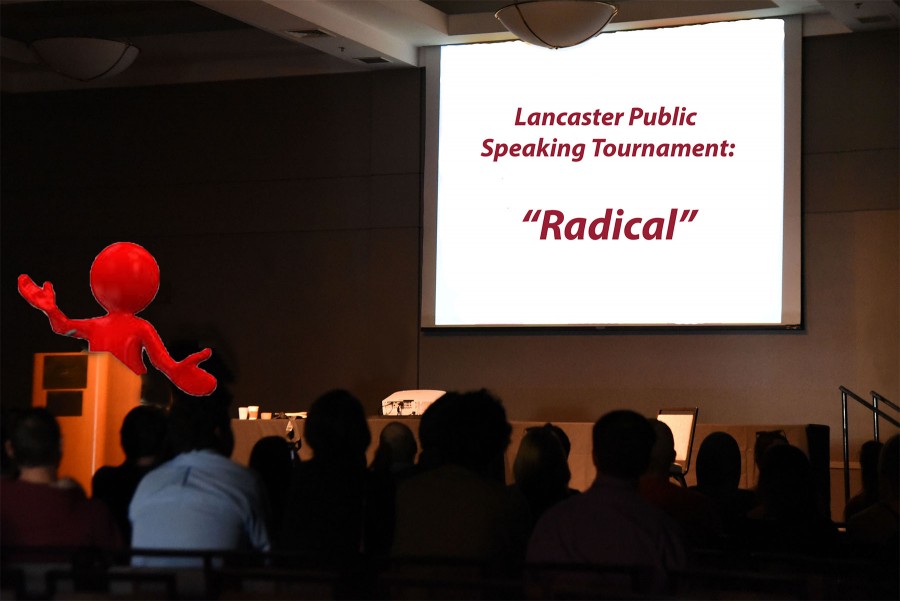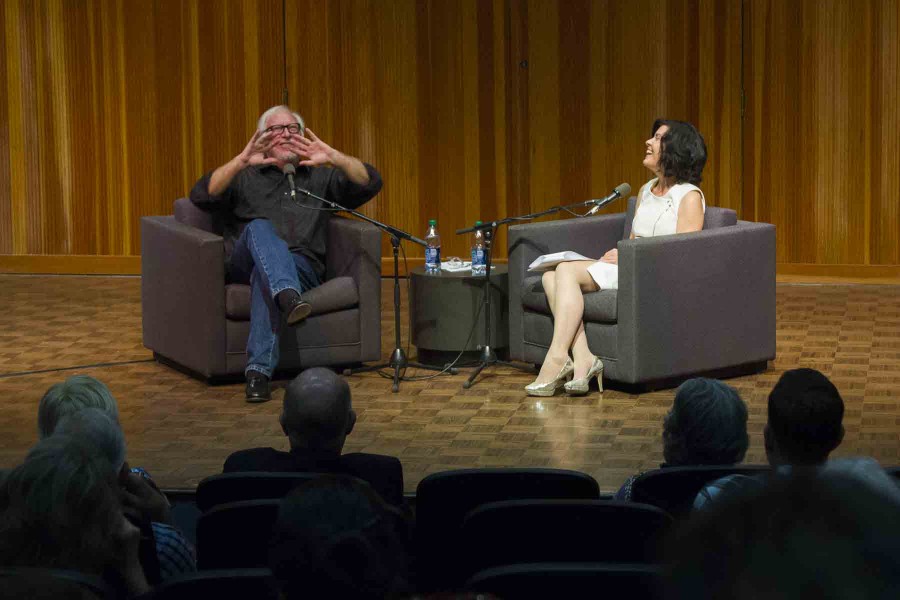A best-selling author and U.S.A. Memory Champion spoke about his book on modern society’s detrimental effects on memory Monday night at Campbell Hall.
“A shocking number of us are incapable of recounting even the most basic scraps of knowledge one would have hoped we would have picked up at some point along the way,” said Joshua Foer, author of “Moonwalking with Einstein: The Art and Science of Remembering Everything.”
A part of UCSB’s seventh annual Reads series, this event was attended by a mixed crowd of older citizens clinging to each word as well as students scrambling to jot down notes as quickly as Foer spoke. Despite being a Monday night, the auditorium reached its capacity of 900 and the theatre’s house crew even turned away at least a hundred people.
What started as Foer merely covering the U.S.A. Memory Championship in 2005 turned into him winning said competition the following year and thus writing a book that details his journey. While his book delves into the specific techniques used to memorize anything from shuffled decks of playing cards to long number sequences, Foer’s speech had a different focus.
Foer said he finds it strange that people are not shocked by their faulty memories but rather accept it as a given fact. He attributed our inadequate memories to our lack of investment when it comes to information and said that we are like sieves and with more things to filter through, that investment dwindles even more.
Another thing he attributed our weak memories to is our education system. Referencing studies conducted about learning habits, he introduced the audience to the idea of “space learning,” which is a process that has shown that the mind holds onto information better when it is repeated over great lengths of time, quite different from this binge-purge style of learning to which most Americans have become accustomed.
“There’s no free lunch when it comes to learning,” said Foer in reference to how to combat our passive education methods.
Technology may make remembering things easier, but at what expense, Foer asked. With the externalization of information people rely less and less on their minds to remember details. A Columbia University study showed that when someone learns something but knows the same information can be accessed easily later on, they invest less in remembering.
Memory tricks used by ancient Romans sparked Foer’s interest. His latest project deals with the Pygmies of the Congo, one of the last hunter-gatherer societies on Earth. Of course, after memorizing a 1,000-word dictionary, Foer said he is already almost fluent in Lingala, their rare African language.
“I am the former U.S. freaking memory champion and if you asked me to tell you how much of the raw knowledge that was imparted to me during my freshman year of college … I would have to tell you, ‘I’m not even sure what classes I took freshman year,'” said Foer, to show that even he can be forgetful. “Let me promise you something, all of you students in the audience, someday–not that long from now, neither will you.”









